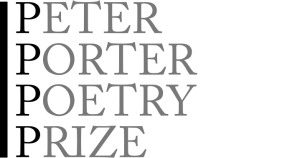Sarah Day
Jakob Ziguras – widely published in Australian literary magazines and the recipient of prestigious poetry prizes – was born in Poland and came to Australia as a child with his parents in 1984. He studied fine arts before completing a doctorate in philosophy, which he teaches (he is also a translator). Much of this background is in evidence in his poetry. In recent years he has lived in his birthplace, Wrocław, Poland, translating contemporary Polish poets while working on his third book of poems, Venetian Mirrors.
... (read more)Read the five shortlisted poems for ABR’s 2025 Peter Porter Poetry Prize.
... (read more)Readers who loved James Rebanks’s autobiographical The Shepherd’s Life: A tale of the Lake District (2015) – a bestseller at home and abroad, translated into sixteen languages, and winner of numerous prizes – will welcome this new work. His first book tells the story of a recalcitrant youth who wants nothing more than to leave school early to work on his parents’ and grandparents’ farm. Eventually, he resumes his studies, which take him to Oxford, and begins his richly evocative account of his life as a Lake District shepherd. What magnifies and deepens this apparently simple narrative and surely accounts for its universal imaginative appeal is that the work he describes is the continuation of a tradition going back more than a thousand years. Against the backdrop of the Cumbrian massif, daily human and animal preoccupations, hardships, and rewards – subject as they are to season, weather, and geography – have changed little since the last Ice Age retreated. In 2017, the Lake District was given World Heritage status, in part for its continuous agro-pastoral traditions.
... (read more)At high tide there’s a breakaway from pounding surf.
Some of the ocean has tired of the incessant battering
and steals over the beach away from the refractory swell.
Mud is loath to relinquish anything –
even in the name of science –
it will do so with a belch of methane
and black cloud in water.
The instruments are called ‘loggers’
This is Sarah Day’s ninth collection and one of her most thematically diverse to date. She brings to the poems a thoughtful mix of environmentalism (particularly the unruly yet quiet presence of Tasmania’s natural beauty), her British roots (some of the best poems in the collection refer to the poet’s grandmother’s incarceration in an asylum), and a teacher’s precision with free verse. The poems are not overly experimental in terms of lineation, metre, language, or punctuation, and yet freshness of perspective and authenticity arise inevitably from the poet’s liquid observational engagement with the world’s affairs, whether this be with landscape, the global pandemic, racism, or science (planetary, oceanographic, microscopic).
... (read more)Sarah Day reviews 'Acanthus' by Claire Potter and 'Glass Flowers' by Diane Fahey
Virginia Woolf, in her seminal essay on modern fiction (1919), might have been describing Claire Potter’s method in her fabulous and highly original new collection: Acanthus. These poems seem to break apart consciousness before it becomes encoded, crystalised, as syntax. As a consequence, they have an uncanny and richly compelling ability to lead you away from the dimension in which you think you have entered the poem, in its opening lines, into something entirely different by the time you have reached the end. Somewhere between the beginning and the end something can be depended on to have shifted – mood, pace, imaginative compass bearing, subject plane.
... (read more)Damen O’Brien’s first collection is an exceptional accomplishment. His individual poems have won several competitions (including the 2017 Peter Porter Poetry Prize). O’Brien signals the emphases of Animals with Human Voices in his Afterword, stating that the world has become a ‘meaner’ place during the ten years of its completion: ‘a place of harsh politics, that values outrage over kindness, tribalism over empathy’. He concludes: ‘Like the animals of the title, the poems are voices for human problems and troubles, for the little moments and cares of the human condition.’
... (read more)There’s no getting away from things. / There is driving, then walking miles / along a quiet coast on a rising tide – / with the back-of-the-mind consciousness / that in an hour or so the sea ...
... (read more)







